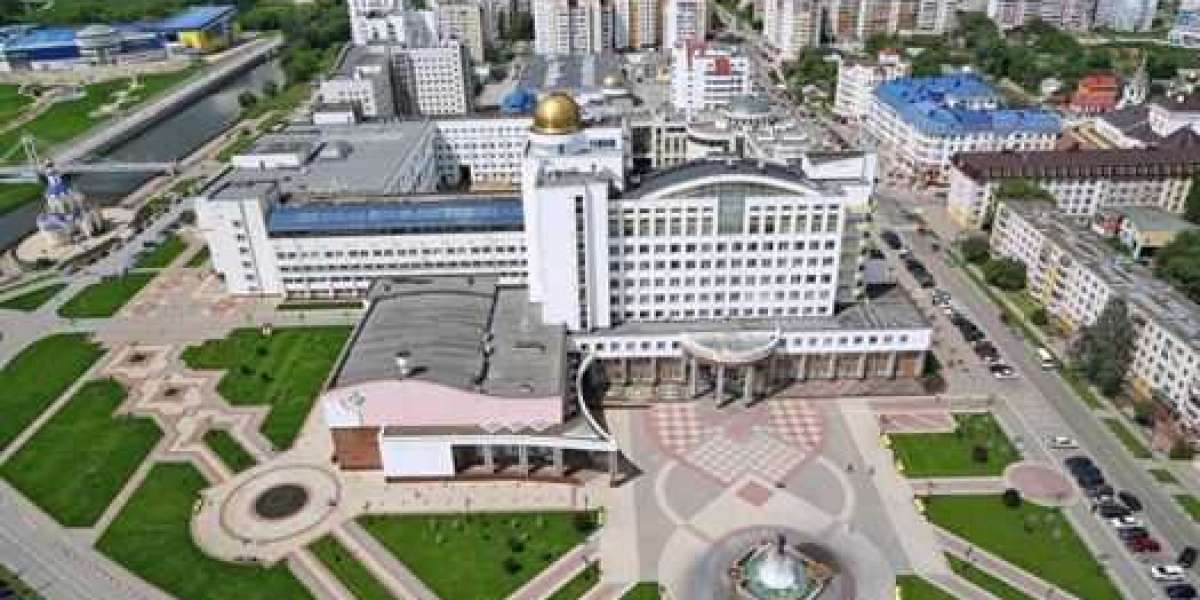Pursuing an MBBS in Russia has become a smart and strategic decision for thousands of Indian students in 2025 who are looking for affordable, globally recognized, and high-quality medical education. Russia has long maintained a reputation for excellence in medical science and education, and over the past few decades, it has opened doors to international students—especially from India—by offering English-medium MBBS programs, world-class infrastructure, and one of the lowest fee structures among leading medical destinations.
Why Indian Students Are Choosing Russia for MBBS
The increasing number of Indian students applying to Russian universities is not a coincidence. The competition for medical seats in India is extremely high, with only a fraction of NEET-qualified candidates able to secure seats in government medical colleges. Meanwhile, private colleges in India charge exorbitant tuition fees and additional capitation or donation fees that many families simply cannot afford. Russia eliminates these financial and academic hurdles, offering a clear, straightforward path to earning a globally recognized MBBS degree.
Eligibility Criteria for Indian Students
To be eligible for studying MBBS in Russia, Indian students must fulfill the standard requirements. The student must be at least 17 years of age on or before 31st December of the admission year. They should have scored at least 50 percent marks in Physics, Chemistry, and Biology in their Class 12 exams under a recognized board. For students belonging to the SC, ST, or OBC categories, 40 percent is acceptable. Additionally, qualifying the NEET exam is mandatory as per National Medical Commission (NMC) rules. It is important to note that NEET scores are valid for three years for MBBS admissions abroad.
Affordable Fee Structure
One of the main attractions of studying MBBS in Russia is its affordability. Compared to private medical colleges in India where the total cost of MBBS can exceed ₹80 lakh, Russian universities offer the same degree for a fraction of that cost. On average, the total tuition fees for the entire six-year MBBS course in Russia range from ₹18 lakh to ₹35 lakh, depending on the university. Additional expenses such as accommodation, food, insurance, and travel typically amount to another ₹5 to ₹10 lakh for the full duration. Therefore, Indian students can complete their MBBS in Russia at a total cost between ₹25 lakh to ₹45 lakh, making it a highly cost-effective option.
Course Duration and Medium of Instruction
The duration of the MBBS course in Russia is six years, which includes five years of academic education and one year of clinical internship. Some universities may offer seven-year programs depending on the language of instruction and internship structure. Most top-tier universities offer full English-medium instruction throughout the entire six years, ensuring that Indian students face no language barrier. However, students are often encouraged to learn basic Russian during their studies to help with patient interaction during clinical rotations and daily life in the country.
Top Medical Universities in Russia
Russia is home to several prestigious medical universities that are recognized by the National Medical Commission (NMC) in India, the World Health Organization (WHO), and the Education Commission for Foreign Medical Graduates (ECFMG) in the United States. Some of the most sought-after universities for Indian students include Kazan Federal University, Pirogov Russian National Research Medical University in Moscow, Bashkir State Medical University, Crimea Federal University, Volgograd State Medical University, and Belgorod State University. These institutions are known for their strong academic frameworks, advanced laboratories, modern simulation centers, and government-affiliated teaching hospitals.
Accommodation and Campus Facilities
Indian students studying in Russia benefit from excellent hostel facilities. Most universities provide comfortable accommodation with heating, furniture, and essential amenities. On-campus hostels are often within walking distance of lecture halls and hospitals. Additionally, Indian mess facilities are available in many universities, offering vegetarian and non-vegetarian food options. This helps students adapt easily to life abroad without the stress of managing food or housing independently.
MBBS Admission Process in Russia
Admission to MBBS programs in Russia is straightforward. Once a student has qualified NEET and meets the academic criteria, they can apply directly to the university or through an authorized consultant. After submitting scanned copies of their 10th and 12th mark sheets, NEET scorecard, and passport, they receive an admission letter within a few days. Upon payment of the initial fee, the university issues an official invitation letter required for the student visa. Visa applications are submitted to the Russian Embassy or VFS centers across India. Most Russian universities begin their academic session between September and October, and students are advised to apply at least three months in advance.
Internship and Clinical Training
Upon completing the MBBS course, Indian students who wish to practice medicine in India must pass the Foreign Medical Graduate Examination (FMGE) or, from 2026 onwards, the National Exit Test (NExT). The MBBS degrees awarded by Russian universities are valid in India only if the university is recognized by the NMC, and the student meets all eligibility requirements before admission. It is worth noting that several Russian universities have shown strong performance in FMGE results, with some institutions maintaining passing rates above 25 to 30 percent—well above the national average. This reflects the quality of education and the alignment of the curriculum with Indian standards.
Career Prospects After MBBS in Russia
Apart from returning to India for practice or postgraduate studies, MBBS graduates from Russia can also pursue international licensing exams such as USMLE for the United States, PLAB for the United Kingdom, AMC for Australia, and MCCQE for Canada. Russia’s medical curriculum is aligned with global standards, giving students the flexibility to explore global career options.
Career opportunities after MBBS in Russia are vast. Students can choose to practice in Russia itself, return to India and appear for licensing exams, or apply for PG programs in countries like the UK, USA, Germany, and Canada. Many students opt to pursue specializations in Russia by enrolling in postgraduate medical programs (Residency) offered by the same universities or affiliated hospitals. Russian universities also provide ample scope for research and academic careers, particularly for those inclined towards medical innovation or public health.
Cultural Environment and Safety
Cultural adaptability and safety are important concerns for Indian students studying abroad. Fortunately, Russia is known for its welcoming attitude toward Indian students. Major cities like Moscow, Kazan, Volgograd, and Belgorod have significant Indian student populations. Many universities have Indian student associations that host festivals, offer mentoring, and help newcomers settle in. Russian cities are generally safe, well-connected by public transportation, and affordable in terms of living expenses. Health insurance is mandatory and provides students access to public and private healthcare facilities throughout their stay.
Conclusion
In conclusion, Russia presents a unique blend of affordability, academic excellence, global recognition, and safe living conditions for Indian students pursuing medical education. It eliminates the stress of high donations and intense competition in India and replaces it with structured education, modern clinical exposure, and internationally accredited qualifications. With thousands of Indian students already studying medicine in Russia and many successful alumni now practicing across the world, the path is well-paved for future aspirants.







